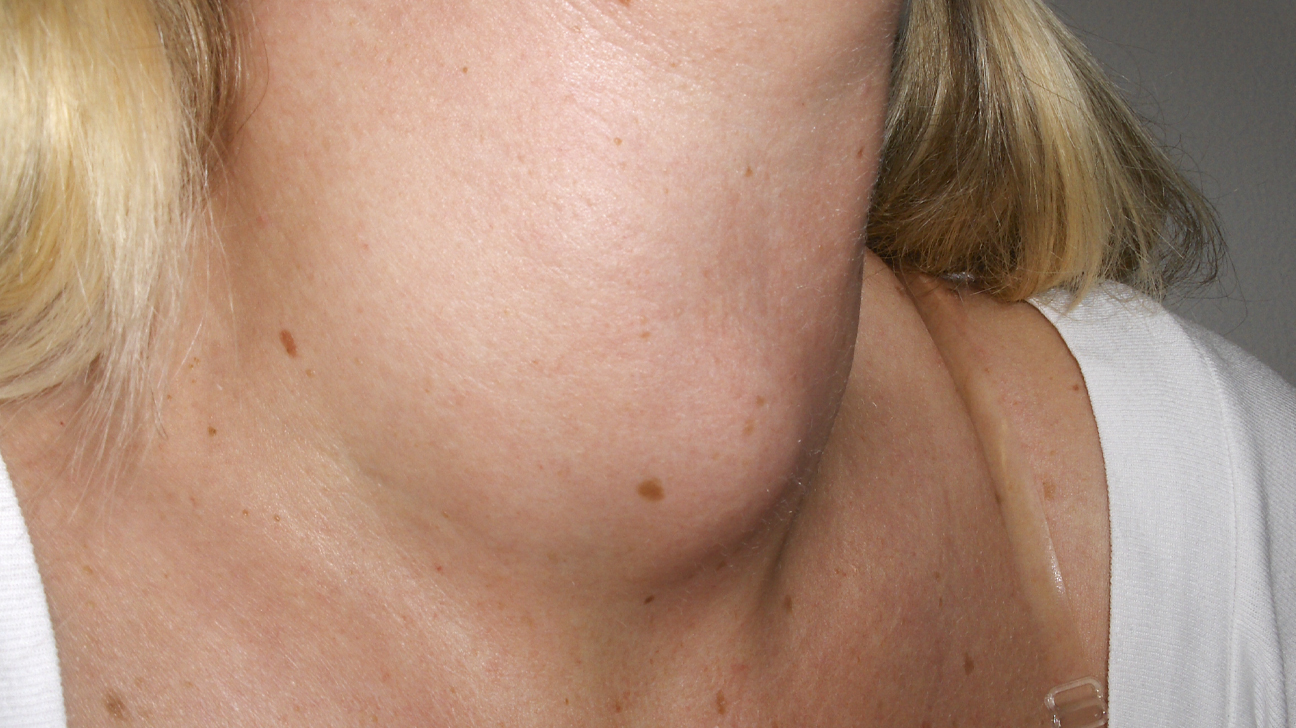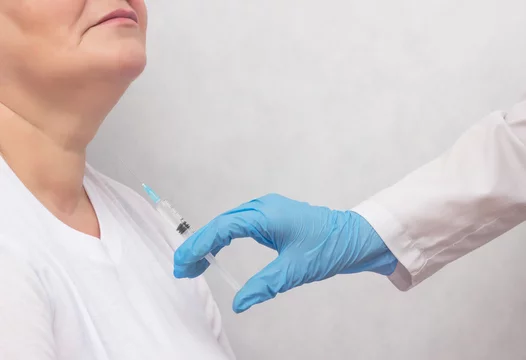Understanding Simple Goitre: Causes, Symptoms, and Treatment
Simple goitre is a condition characterized by an enlargement of the thyroid gland. Unlike more complex thyroid disorders, simple goitre does not involve inflammation, cancer, or hyperthyroidism (overactive thyroid). The condition is relatively common, especially in areas where iodine deficiency is prevalent. While it can cause noticeable swelling in the neck, simple goitre is usually benign and treatable. However, understanding its causes, symptoms, and treatment options is crucial for effective management.
What is Simple Goitre?
The thyroid gland is a butterfly-shaped organ located at the base of the neck and is responsible for producing hormones that regulate metabolism. In simple goitre, the thyroid gland enlarges without any underlying disease or significant dysfunction. The enlargement can range from a barely noticeable swelling to a large, visible lump at the front of the neck.
Causes of Simple Goitre
- Iodine Deficiency: The most common cause of simple goitre is a lack of iodine in the diet. Iodine is an essential component of thyroid hormones. When there is insufficient iodine, the thyroid gland enlarges in an attempt to produce enough hormones. This is why simple goitre is more common in regions where iodine levels in the soil and diet are low.
- Hormonal Changes: Puberty, pregnancy, and menopause are periods of significant hormonal changes that can trigger goitre. During these times, the body’s demand for thyroid hormones increases, leading to gland enlargement.
- Certain Medications: Some drugs, such as lithium (used to treat bipolar disorder) and amiodarone (used for heart rhythm problems), can interfere with thyroid function and lead to goitre.
- Genetics: A family history of goitre or other thyroid disorders can increase the risk of developing simple goitre.
- Environmental Factors: Exposure to certain environmental toxins, such as pollutants and chemicals, may affect thyroid function and contribute to the development of goitre.
Symptoms of Simple Goitre
The most obvious symptom of simple goitre is the visible swelling in the neck. However, other symptoms can accompany the condition, especially if the goitre is large or causes pressure on surrounding tissues:
- Visible Neck Swelling: A soft, movable swelling in the front of the neck, just below the Adam’s apple, is the primary sign of goitre. The size can vary, and in some cases, it may be asymmetrical.
- Difficulty Swallowing: A large goitre can press against the esophagus, making swallowing difficult or uncomfortable.
- Breathing Problems: In severe cases, the enlarged thyroid can press against the windpipe, leading to shortness of breath or a sensation of tightness in the throat.
- Coughing or Hoarseness: The goitre may put pressure on the vocal cords, causing a persistent cough or changes in the voice.
- Tight Sensation in the Neck: Some people with goitre experience a general feeling of tightness or discomfort in the neck area.
- Thyroid Dysfunction (Rarely): While simple goitre typically does not affect thyroid hormone production, in some cases, it can lead to mild hypothyroidism (underactive thyroid) or hyperthyroidism.
Diagnosis of Simple Goitre
If you suspect you have a goitre, it is important to consult a healthcare provider for an accurate diagnosis. The evaluation process typically includes:
- Physical Examination: The doctor will palpate your neck to assess the size and texture of the thyroid gland and check for any associated symptoms.
- Blood Tests: Blood tests will measure levels of thyroid hormones (T3 and T4) and thyroid-stimulating hormone (TSH) to determine if the thyroid is functioning normally.
- Ultrasound: An ultrasound scan of the thyroid provides detailed images of the gland, helping to determine the size, shape, and structure of the goitre.
- Thyroid Scan: A thyroid scan involves using a small amount of radioactive iodine to evaluate thyroid function and detect any abnormalities in the gland.
- Fine Needle Aspiration (FNA) Biopsy: In cases where a nodule is present within the goitre, a fine needle biopsy may be performed to rule out cancer or other serious conditions.
Treatment of Simple Goitre
The treatment of simple goitre depends on the size of the goitre, the presence of symptoms, and the underlying cause. Here are some common approaches:
- Iodine Supplementation: If iodine deficiency is the cause, increasing iodine intake through diet or supplements can help reduce the size of the goitre. This is typically done by consuming iodized salt, seafood, dairy products, and iodine-rich vegetables like seaweed.
- Observation: In cases where the goitre is small and not causing any symptoms, a “wait and see” approach may be recommended. Regular monitoring by a healthcare provider ensures that the goitre is not growing or causing complications.
- Thyroid Hormone Therapy: For individuals with mild hypothyroidism or goitre that is not shrinking with iodine supplementation, thyroid hormone replacement therapy may be prescribed. This helps regulate hormone levels and reduce the size of the goitre.
- Surgery: If the goitre is large, causing significant symptoms (such as difficulty breathing or swallowing), or if there is a suspicion of cancer, surgical removal of part or all of the thyroid gland (thyroidectomy) may be necessary.
- Radioactive Iodine Therapy: In some cases, especially when the goitre is associated with hyperthyroidism, radioactive iodine may be used to shrink the thyroid gland. This treatment reduces the size of the goitre over time by destroying excess thyroid tissue.
- Lifestyle Changes: Maintaining a balanced diet with adequate iodine intake, avoiding goitrogens (substances that can interfere with thyroid function, found in some foods like soy and cruciferous vegetables), and regular monitoring can help manage simple goitre effectively.
Prevention of Simple Goitre
Preventing simple goitre primarily involves ensuring adequate iodine intake. This can be achieved by:
- Using Iodized Salt: Most table salt is fortified with iodine, making it an easy way to ensure sufficient intake.
- Eating a Balanced Diet: Include foods rich in iodine, such as fish, shellfish, dairy products, and seaweed, in your diet.
- Avoiding Excessive Consumption of Goitrogens: While foods like broccoli, cabbage, and soy contain goitrogens, they do not need to be completely avoided. However, excessive consumption of these foods in raw form may contribute to goitre in individuals with iodine deficiency.
- Regular Health Check-ups: Routine thyroid screenings, especially in individuals with a family history of thyroid disorders, can help detect and manage goitre early.
Conclusion
Simple goitre is a common thyroid condition that, while often benign, can cause discomfort and visible changes in the neck. Understanding the causes, symptoms, and treatment options is essential for effective management. In most cases, simple goitre is manageable with lifestyle changes, medication, or, in more severe cases, surgery. Regular monitoring and early intervention are key to preventing complications and ensuring overall thyroid health.





